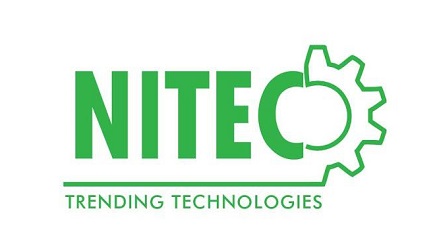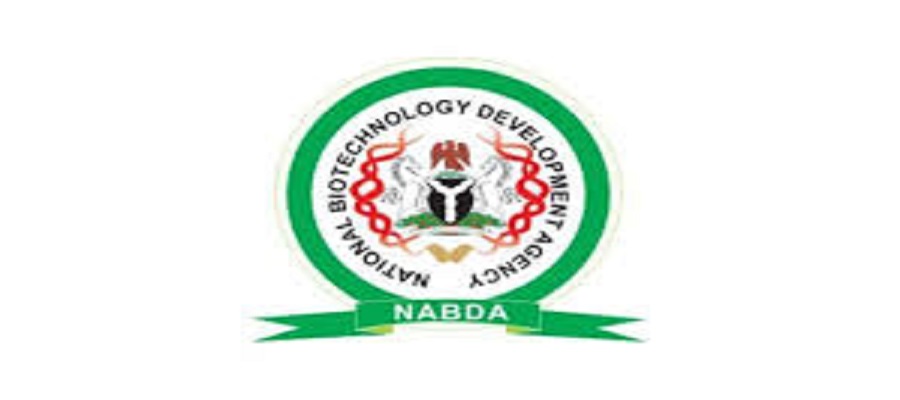News
NITEC and Need For IoT Future-Ready Nigeria

For emphasis sake, the latest edition of the Ericsson Mobility Report, published on Tuesday reveals that the Internet of Things (IoT) is set to overtake mobile phones as the largest category of connected device by 2018. Really?
Oh yes! See, between 2015 and 2021, the number of IoT connected devices is expected to grow 23% annually, of which cellular IoT is forecast by Ericsson to have the highest growth rate. Of the 28 billion total devices that will be connected by 2021, close to 16 billion will be IoT devices.
The report continues, as usual, Western Europe will lead the way in adding IoT connections – the number of IoT devices in this market is projected to grow 400 percent by 2021. This will principally be driven by regulatory requirements, for example for intelligent utility meters, and a growing demand for connected cars including the EU e-call directive to be implemented in 2018.
Rima Qureshi, Senior Vice President & Chief Strategy Officer, Ericsson, says: “IoT is now accelerating as device costs fall and innovative applications emerge. From 2020, commercial deployment of 5G networks will provide additional capabilities that are critical for IoT, such as network slicing and the capacity to connect exponentially more devices than is possible today.”
Wait. Is Nigeria in the number even with the estimated population of 173million, mobile subscriber level standing at 97,032,543 as at first quarter 2016 and with over 107 percent teledensity for voice segment of telecommunications services. Is Nigeria really ready for the Internet of things with not more than 15% broadband penetration, although the national broadband plan sets 30% target by 2018. Oh, wait, among the telcos, how many have sincerely deployed 4G LTE services. If 4G is still an allusion in certain cities, should we be concerned or just hope 5G will come. But, what are the factors inhibiting the telcos from deploying the 4G LTE technologies as quick as possible. Are they surmountable or we are now in a pariah state. Will the funds in the Universal Service Provision fund (USPF) kitty be enough to deploy services especially to the underserved. In fact, what are the practical steps have been Barrister Adebayo Shittu led Ministry of Communications to ensure Nigeria is on course for IoT.
We need to hear from the horses mouth, which emphasizes the need all hand must be on deck to push for the success of the Nigeria International Technology Exhibition & Conference (www.nitec.com.ng) (NITEC 2016).
The conversation around IoT is such important, because if I find it difficult at the moment to stream videos, whether live or plug and play, how will my refrigerators be ‘empowered’ with enough broadband to inform me while I am miles away from home.
And IoT is developing another massive market, because by the time it becomes ubiquitous, ‘we shall live in/on apps’.
Ericsson reports that smartphone subscriptions continue to increase and are forecast to surpass those for basic phones in Q3 2016. By 2021, smartphone subscriptions will almost double from 3.4 billion to 6.3 billion.
“In 2016, a long anticipated milestone is being passed with commercial LTE networks supporting downlink peak data speeds of 1 Gbps. Devices that support 1 Gbps are expected in the second half of 2016, initially in markets such as Japan, US, South Korea and China, but rapidly spreading to other regions. Mobile users will enjoy extremely fast time to content thanks to this enhanced technology, which will enable up to two thirds faster download speeds compared with the fastest technology available today”.
More highlights from the Ericsson Mobility Report include:
“A global growth story: mobile broadband subscriptions will grow fourfold in the Middle East and Africa between 2015 and 2021; mobile data traffic in India will grow fifteen times by 2021; and despite being the most mature market, US mobile traffic will grow 50 percent in 2016 alone.
“Data traffic continues unabated growth: global mobile data traffic grew 60 percent between Q1 2015 and Q1 2016, due to rising numbers of smartphone subscriptions and increasing data consumption per subscriber. By the end of 2021, around 90 percent of mobile data traffic will be from smartphones.
“Growing up streaming: teenage use of cellular data for smartphone video grew 127 percent in just 15 months. This, and the fact that teens are the heaviest users of data for smartphone video streaming (Wi-Fi and cellular combined), makes them the most important group for cellular operators to monitor.
“LTE subscriptions grew at a high rate during Q1 2016: there were 150 million new subscriptions during the quarter – driven by demand for improved user experience and faster networks – reaching a total of 1.2 billion worldwide. LTE peak data speeds of 1 Gbps are anticipated to be commercially available in 2016.
“Additional spectrum harmonization needed between countries planning early 5G deployment: 5G is expected to start more quickly than anticipated, and spectrum harmonization is needed between countries planning early roll-outs. This is in addition to the current process for WRC-19, which focuses on spectrum for commercial 5G deployments beyond 2020.
“A bright future for microweather: microwave backhaul links can be used as accurate rainfall measurement tools – they are more numerous than rain gauges and offer higher resolution than weather radars. This has the potential to bring enormous value to people, business and society, for example in relation to the impact of severe weather conditions around the world”.
In preparation for the IoT rainy day, NITEC 2016 will present a holistic look at the concept of Internet of Things. Will Africa rise to develop its own local talents to take advantage of this trend? Or would it just seat down like the mobile revolution era and consume everything created from abroad?
Thus, NITEC 2016 holding at Civic Centre, Lagos from 23rd-24th June remains a formidable to bridge the gap between the private and public sectors and the international technology community in re-engineering the African technological ecosystem for greater impact on the continent’s GDP.
Likewise, through plenary sessions and exhibitions the worth of our technology system will be showcased to thousands of attendees; exhibition booth (2 days); placement of brand logo on event brochure and website; complimentary wifi, place web banners and share branded gifts at booths.
The renowned speakers will spark deepened conversation and help through up new innovations that will help Nigeria and indeed, Africa, become IoT-future ready.
News
TikTok Returns on Apple, Google US App Stores as Trump Delays Ban

TikTok returned to the U.S. app stores of Apple and Google on Thursday as President Donald Trump delayed a ban on the Chinese-owned social media app and assured the tech giants they would not be fined for distributing or maintaining it.

The popular short video app used by nearly half of all Americans went dark briefly last month, before a law took effect on January 19 that requires its Chinese owner ByteDance either to sell it on national security grounds or face a ban.
The following day, Trump signed an executive order seeking to delay the enforcement of the ban by 75 days, allowing TikTok to continue its operations in the U.S. temporarily.
Although TikTok resumed service after Trump’s assurances, Google and Apple kept the app removed from their U.S. app stores.
TikTok, the second-most downloaded app in the U.S. last year, said on Thursday that its latest app was now available for download.
The delay could have been because Google and Apple were awaiting assurances that they would not be prosecuted for hosting or distributing the app, according to analysts.
Trump’s directive said the companies, which run mobile application stores or digital marketplaces where users can browse, download and update apps, would not face penalties for keeping the TikTok app up and running.
TikTok had more than 52 million downloads in 2024, according to market intelligence firm Sensor Tower.
About 52% of its total downloads were from Apple App Store, while 48% were from Google Play in the U.S. last year, Sensor Tower said.
The law that requires ByteDance to sell TikTok’s U.S. assets or ultimately face a ban was signed by then President Joe Biden last April, triggered by national security concerns and fears that China could use the video-sharing app to spy on American users.
The U.S. has never banned a major social media platform and the law that passed last year gives the government sweeping authority to ban or seek the sale of other Chinese-owned apps. Trump said on Thursday that his 75-day deadline on TikTok could be extended.
The turmoil at TikTok attracted several potential buyers, including former Los Angeles Dodgers owner Frank McCourt, who have expressed interest in the fast-growing business that analysts estimate could be worth as much as $50 billion.
Trump has said that he was in talks with multiple people over TikTok’s purchase and would likely have a decision on the app’s future in February.
News
FG Order MDAs to Close Commercial Banks’ Accounts, Enforce TSA Policy

Federal government has directed all Ministries, Departments, and Agencies (MDAs) operating in states to close their accounts with commercial banks and fully comply with the Treasury Single Account (TSA) policy.

Dr. Oluwatoyin Madein, accountant-general of the Federation,
The directive was issued by Dr. Oluwatoyin Madein, accountant-general of the Federation, during a working visit to the Federal Pay Office in Benin, Edo State.
This was disclosed in a statement released on Thursday by Bawa Mokwa, director of Press and Public Relations at the Office of the Accountant-General of the Federation.
Reaffirming the government’s commitment to the TSA policy, Madein warned that no MDA should operate accounts with commercial banks unless expressly approved by the President and officially communicated by her office.
The statement reads:
“While reiterating the Federal Government’s commitment to the Treasury Single Account policy, the Accountant-General of the Federation urged the Federal Pay Officers to monitor and ensure that Ministries, Departments, and Agencies in the States do not operate any account with the commercial banks or circumvent any provision of the TSA policy.”
She further stressed that any exceptions must follow strict guidelines, requiring presidential approval and formal communication from the Office of the Accountant-General.
Madein also tasked Federal Pay Officers (FPOs) with ensuring compliance, upholding transparency, and maintaining professionalism in their financial operations.
She warned against actions that could undermine the integrity of the Federal Treasury and emphasized the need for accurate financial record-keeping.
As part of ongoing reforms, she revealed that the Federal Government is constructing new Federal Pay Offices in some states to address infrastructure and operational challenges.
She assured that her office remains committed to the welfare of its personnel while enforcing compliance with financial regulations, including the Public Procurement Act and the Constitution.
Her visit to the Benin Federal Pay Office was part of a nationwide tour to assess the operations and challenges of Federal Pay Offices across the country.
News
NBRDA Investigates Biocatalysts for Bioethanol Production

National Biotechnology Research and Development Agency (NBRDA) is investigating the development of biocatalysts from underutilised bioresources through its Young Researchers Forum (YRF) research group for bioethanol production.

Prof. Abdullahi Mustapha, director general, NBRDA sated this in an interview conducted in Abuja on Wednesday
Biocatalysts, which can be either bacteria or enzymes, are biological entities that accelerate chemical reactions.
An alcohol-based fuel derived from renewable resources such as plants and algae is called bioethanol. It can be blended with petrol or used in place of it to cut down on petroleum use.
He asserted that bioethanol is crucial and that Nigeria has the means to fully investigate its possibilities, noting that the production of bioethanol will be helpful in setting up bioethanol plants.
“However, the catalyst for the fermentation of sugar to produce ethanol is what we are after, and we have it locally.
“When we isolate the biocatalyst, it is going to be useful in helping to establish a bioethanol factory, which will function very well due to our varying weather conditions,’’ he said.
Bioethanol has similar uses to fuels used to generate other classes of energy like heat, motor power, transportation, and electricity, the NBRDA chief added.
According to him, bioethanol is the most widely used biofuel in modern civilisation, and the process of turning biomass into bioethanol is receiving a lot of attention.
“Biological energies are renewable fuels with minimal pollution and play an important role in reducing greenhouse gas pollution, and one of them is bioethanol, which is obtained from fermentation operations.
“The world’s attention to the use of bioethanol as an energy source is focused on reducing the cost of production and increasing the efficiency of the ethanol industry.
“By consuming ethanol fuel instead of fossil fuels, the amount of greenhouse gas emissions known to be the cause of global warming will be somehow reduced,’’ Mustapha said.
According to the D-G, the creation of the Young Researchers Forum (YRF) demonstrates the agency’s efforts to support nation-building.
He added that young biotech innovators chosen from across the agency’s departments will use the conference as a training ground and launching pad.
The YRF, according to Mustapha, was a manifestation of his wish to establish an institutional framework for mentoring that would close generational divides.
He stated that one of the projects the YRF would concentrate on was the development of biocatalysts for the manufacture of bioethanol.

 E-Business2 days ago
E-Business2 days agoSchmidt, Ex Google Chief Says AI Risky in Terrorist Hands

 News2 days ago
News2 days agoFG Order MDAs to Close Commercial Banks’ Accounts, Enforce TSA Policy

 Telecom2 days ago
Telecom2 days agoBreaking….Tariff Hike: MTN Apologizes to Nigerians but Silent on Reversal

 News3 days ago
News3 days agoIFC Partners Mohinani Group to Drive Plastic Recycling and Manufacturing in Nigeria, Ghana

 Telecom3 days ago
Telecom3 days agoAngst over Telecom Tariff Hike as Subscribers Demand Sanctions, Labour Orders Boycott

 News3 days ago
News3 days agoNDLEA Says 14m Nigerians Affected by Consumption of Harmful Drugs

 News3 days ago
News3 days agoNBRDA Investigates Biocatalysts for Bioethanol Production

 E-Business3 days ago
E-Business3 days agoOpenAI CEO Rejects $97.4Bn Takeover Bid from Elon Musk















